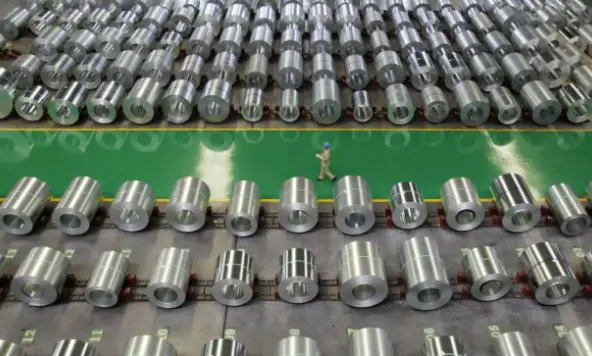The mainland’s dilemma about state firms could not have been clearer.
In an opinion piece in the official People’s Daily on Thursday, Renmin University professor Zhou Xincheng attacked suggestions that state-owned enterprises should be privatised, calling on the authorities to make SOEs “bigger and stronger”.
The article was published on page seven of the ruling Communist Party’s mouthpiece and as such has less weight than an editorial or a front-page interview.
But its publication amid a broader debate on “supply-side” economic reforms highlights the administration’s predicament about state firms – Beijing wants the massive enterprises to be more profitable but is unwilling to loosen its grip on them.
Official ideology brands China as a socialist country reliant on “public ownership” even though most economic growth and employment is generated in the private sector.
The country’s lumbering state firms are struggling with excess capacity and too much borrowing – combined profits of mainland SOEs fell 8.4 per cent in the first four months of this year from the same time a year earlier.
Sheng Hong, a researcher with Beijing-based independent think tank Unirule Institute of Economics, said the re-emergence of anti-privatisation voices showed there was a “strong resistance to real reforms” and he was “not optimistic at all” about the reform process.
“It’s already very clear that the state sector is a burden for the Chinese economy,” Sheng said. “China’s SOEs never serve the public, they just serve a small group of interest groups.”
Those interest groups would have to give way to realise a President Xi Jinping’s blueprint for SOEs released in September.
The blueprint calls for changes to make state firms leaner and more efficient but it also seeks a bigger role for the party in decision-making.
The plan for SOEs is part of Xi’s hallmark policy of supply-side structural reforms, an approach the president says is very different from the economic policy adopted by US president Ronald Reagan and former British prime minister Margaret Thatcher in the 1980s.
Xi said the mainland’s supply-side reform was more than “an issue of tax or tax rate” – it was a slew of structural measures to seek innovation, prosperity and well-being. He said his concept meant “cutting capacity, reducing inventory, cutting leverage, lowering costs, and strengthening the weak links”.
“The word ‘structural’ is very important, you can shorten it as ‘supply-side reform’, but please don’t forget the word ‘structural’,” he said.
But a report by the Washington-based Centre for Strategic and International Studies said that in terms of SOEs, the approach also reflected Beijing’s reluctance to rebalance the role of the state and market in economic and social development.
In the report, authors Scott Kennedy and Christopher Johnson said the efforts to ensure SOEs did not fail, along with other attempts to stabilise the stock market and the yuan exchange rate, were “justifications for the government to intervene as opposed to what was perceived as the riskier path of letting markets determine the preferred outcomes”.
For mainland conservatives, however, SOEs are the bedrock of public ownership, and their health offers political legitimacy for the Communist Party’s rule.
“It’s an inherent requirement from socialism that state-owned enterprises must perform well,” Zhou wrote in People’s Daily.
“We must ensure the dominance of public ownership. That’s the key to maintaining the socialist nature of Chinese society.
“Neoliberals say public ownership is incompatible with the market economy, and their purpose is to guide China’s SOE reform to a path of privatisation. We must be on high alert for this.”
(SOUTH CHINA MORNING POST)
 简体中文
简体中文

